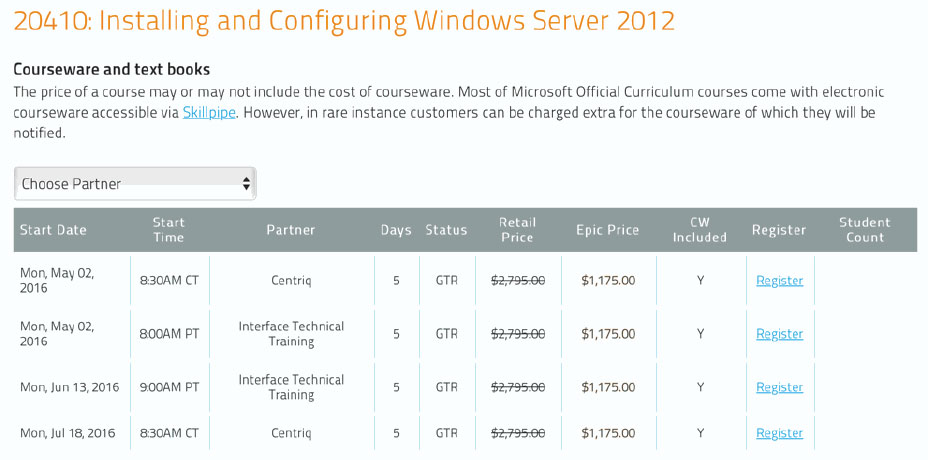F5IRULES13X: F5 Networks Developing iRules for BIG-IP v13
About this Course
This course provides networking professionals a functional understanding of iRules development. The course builds on the foundation of the Administering BIG-IP course, demonstrating how to logically plan and write iRules to help monitor and manage common tasks involved with processing traffic on the BIG-IP system. Extensive course labs consist of writing, applying and evaluating the effect of iRules on local traffic.
Audience Profile
This course is intended for system administrators, network administrators and application developers responsible for the customization of traffic flow through a BIG-IP system.
At Course Completion
Outline
Lesson 1 : Setting Up the BIG-IP System
- Introducing the BIG-IP System
- Initially Setting Up the BIG-IP System
- Archiving the BIG-IP System Configuration
- Leveraging F5 Support Resources and Tools
Lesson 2 : Getting Started with iRules
- Customizing Application Delivery with iRules
- Triggering an iRule
- Leveraging the DevCentral Ecosystem
- Using the F5 iRule Editor
- Assigning and Testing iRules
Lesson 3 : Exploring iRule Elements
- Introducing iRule Constructs
- Understanding iRule Events and Event Context
- Working with iRule Commands
- Logging from an iRule Using SYSLOG-NG
- Working with User-Defined Variables
- Working with Operators and Data Types
- Working with Control Structures
- Incorporating Best Practices in iRules
Lesson 4 : Developing and Troubleshooting iRules
- Mastering Whitespace and Special Symbols
- Developing and Troubleshooting Tip
- Tracing iRule Execution and Profiling Performance
- Using Fiddler to Test and Troubleshoot iRules
Lesson 5 : Optimizing iRule Execution
- Understanding the Need for Efficiency
- Profiling iRule Performance with the Rule Profiler
- Measure iRule Runtime Efficiency Using Timing Statistics
- Modularizing iRules for Administrative Efficiency
- Using Procedures to Modularize Code
- Optimizing Logging
- Using High-Speed Logging Commands in an iRule
- Implementing Other Efficiency Recommendations
- Using Looping Control Structures (Iteration)
Lesson 6 : Securing Web Applications with iRules
- Integrating iRules into Web Application Defense
- Mitigating HTTP Version Attacks
- Mitigating Path Traversal Attacks
- Using iRules to Defends Against Cross-Site Request Forgery (CSRF)
- Mitigating HTTP Method Vulnerabilities
- Securing HTTP Cookies with iRules
- Adding HTTP Security Headers
- Removing Undesirable HTTP Headers
Lesson 7 : Working with Numbers and Strings
- Understanding Number Forms and Notation
- Working with Strings
- Combining Strings
- Using iRule String Parsing Functions
Lesson 8 : Processing the HTTP Payload
- Reviewing HTTP Headers and Commands
- Accessing and Manipulating HTTP Headers
- Parsing the HTTP URI
- Selectively Compressing HTTP Data
Lesson 9 : Working with iFiles and Data Groups
- Working with iFiles
- Introducing Data Groups
- Working with Old Format Data Groups
- Working with New Format Data Groups
Lesson 10 : Using iRules with Universal Persistence, Stream, and Statistics Profiles
- Implementing Universal Persistence
- Working with the Stream Profile
- Collecting Statistics Using a Statistics Profile (STATS Command)
- Collecting Statistics Using iStats (ISTATS Command)
Lesson 11 : Working with Advanced Variables
- Reviewing the Local Variable Namespace
- Working with Arrays
- Using Static and Global Variables
- Using the Session Table
Prerequisites
Administering BIG-IP or Configuring BIG-IP LTM: Local Traffic Manager or hold the F5 Certified BIG-IP Administrator certification.

